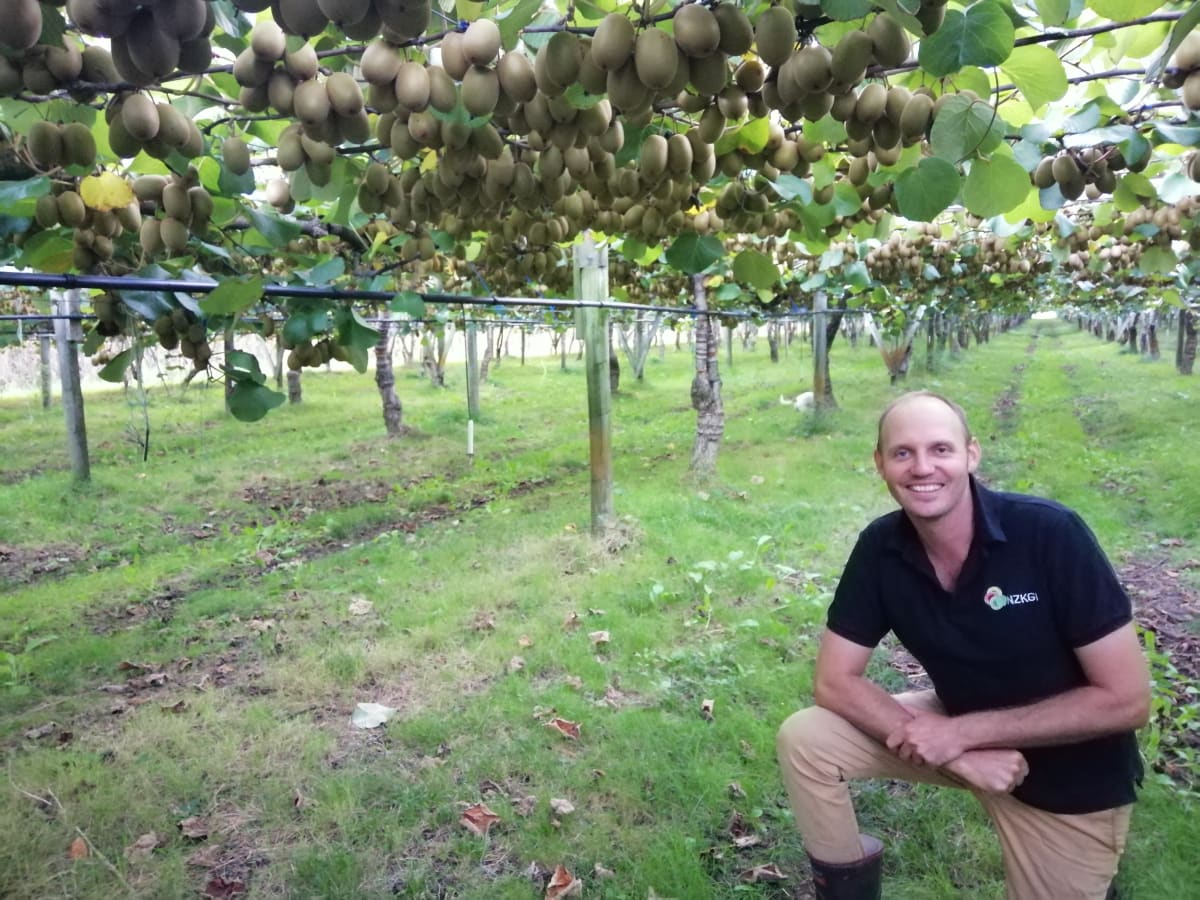
Gisborne District Council’s attempt to treat kiwifruit licences as rateable land improvements may have wide-reaching affects on other businesses.
Kiwifruit grower Tim Tietjen didn’t know the Gisborne District Council would be doubling the rates bill for his property until he read about it in the local paper.
In a radical shift from previous rating policy, the council had decided licences for the SunGold or G3 variety of gold kiwifruit – licences Tietjen and his fellow growers buy from kiwifruit marketer Zespri – would now be counted as land improvements and billed accordingly.
Instead of his property having a rated value of $2.8 million, it was now calculated at $4.1 million.
There had been little consultation with affected farmers, and although the council had prepared a report in 2020 and got the changes signed off by the valuer general, the information was buried on pages 116-119 of the chunky document. It wasn’t even mentioned in the introduction to that report.
Still the impact for growers was clear enough, when it came through.
The rates bill for Tietjen’s orchard went from $4,364 for the 2020-2021 cycle to $8,221 in 2021-2022.
Some other Gisborne kiwifruit growers saw their bills triple.
“Kiwifruit is going through a boom time, which is why I think the council was maybe targeting kiwifruit growers,” Tietjen told Newsroom. “We can’t say we can’t afford it, but it makes things tougher. And kiwifruit is a risky business.”

It certainly is. In 2010 the virulent vine disease PSA swept through New Zealand, wiping out orchards and livelihoods. Losses just for the 212 growers involved in a court case against the Ministry for Primary Industries totalled $450 million.
Growers have also been hard hit by Covid-related labour shortages, struggling with most of the seasonal workers and backpackers they rely on to pick and pack their produce.
And the Zespri licences aren't easy to get – or cheap. The licences are allocated using a competitive tender process and the average price has been half a million dollars per 'canopy hectare' over the last few years.
Tietjen says he hasn't been unable to get hold of any of the licenced G3 kiwifruit in recent tenders, although he did succeed with one tender for red kiwifruit.
Councils’ potential rates bonanza
Gisborne’s rates grab was likely to be the tip of the iceberg, said Colin Bond, chief executive of the kiwifruit growers industry body NZKGI.
Tietjens’s family-owned orchard is small in the scheme of things, 5.85 hectares out of a total 12,000 hectares of kiwifruit in the country, less than 0.05 percent of total plantings in New Zealand.
Gisborne too is a small producer, with only about 60 growers out of a total of 2800 in the country; the vast majority (81 percent) are in the Bay of Plenty.
But extrapolate that out, as a theoretical exercise. Tietjens owns just less than 0.05 percent of the total hectares of kiwifruit in the country. His rates went up almost $4000 a year. Replicated across the other 99.95 percent of growers and it’s possible councils could reap an additional $8 million in rates from the kiwifruit sector.
“Gisborne was the first council trying to attach the value of the Zespri licence to the value of the land,” Bond says. “But we were aware of other councils looking on with interest to the outcome.”
NZKGI decided to take the council to court over the new ratings calculations, and as its representative for Gisborne, Tietjen and his family company Bushmere Trust put his name on a case taken to the Land Valuation Tribunal and now to the High Court.
“It didn’t seem right to me what they were doing, so I was happy to put my hand up.”
The council argued the SunGold and other kiwifruit licences that growers might buy from Zespri – red kiwifruit is the most recent – are “inherent and fundamental” to the capital value of the land being rated.
“The licence is personal to the grower, not fixed to the land.” – Tim Tietjen, kiwifruit grower
“The addition of the licence unlocks the value and potential of any given property,” the council’s report says. “The licence is ‘work done on or for the benefit of the land by the expenditure of capital’. The licence ‘attaches’ and is complementary to the other improvements as defined under the Ratings Valuations Act.”
Other improvements could include kiwifruit plantings, irrigation, fencing, drainage, and shelter belt trees, Tietjen says, and that’s fine. Kiwifruit growers have no problem them being part of the rating valuation.
But they argue the Zespri licence is quite different.
“The licence is personal to the grower, not fixed to the land. A lot of people use a separate legal entity which owns the licence, separate to the landowner,” he says.
If a grower sells their property, they sell the rootstock, the irrigation systems and the fencing, but the licence goes back to Zespri, which then issues a new licence to the new owner.
In the same way that tractors or harvesters aren’t included as part of the rateable value of land, so licences shouldn’t be included either, Tietjen says.
Growers win decisive victory
The Land Valuation Tribunal agreed, ruling the rateable value for Bushmere Trust should be set at $2.8 million, not the $4.1 million the council wanted.
The decision means the same calculation – not including the Zespri G3 or other licences in land valuation – will apply to other Gisborne growers.
“We have concluded the kiwifruit licence is not an improvement to or for the benefit of the land,” tribunal chair Judge Jeff Smith said. “It represents a speculative investment by the owner with the prospect of increasing income from the orchard business.”
“The judge compared it with a factory," says Tietjens, "where you upgrade a piece of equipment and get better productivity and revenue.” That wouldn’t lead to a change in the rateable value of the property, he says.
Gisborne District Council doesn’t agree, and has appealed the tribunal’s decision.
That’s potentially bad news, not just for kiwifruit growers.
“A licence is a purchase of intellectual property, as with a whole range of licences where businesses have the right to the use or make of a product,” lawyers for Bushmere and the kiwifruit growers argued. “This includes other fruit licences such as avocado and apples or in fact many other businesses that utilise the land for a number of purposes that include marketing rights or licences."
This might be water rights, or franchise agreements. If Gisborne District Council is successful, councils could well widen the net.
An appeal from the top
With the appeal due to be heard in the High Court later this year, Gisborne District Council didn’t want to comment to Newsroom. However, its statement confirms the action comes from the top – New Zealand’s Valuer-General, Neill Sullivan:
“The decision to appeal comes on the advice and support of the Valuer-General, who considers that the Land Valuation Tribunal’s decision is inconsistent with past case law decisions and the Rating Valuations Act 1998 requirement to value established vines as improvements.
“Removal of the gold kiwifruit vine value due to the existence of a licence creates an inequitable outcome for ratepayers, unfairly reducing the rating valuation and rates burden for some property owners and increasing the rates burden for others.”
The Valuer-General will bear the full cost of the appeal, the council says, as he “considers it to be in the national public interest for the matter to be heard”.
The Valuer-General will also be joining the proceeding as an interested party.
The decision to appeal is disappointing, says Māori agribusiness leader Alan Haronga, chair of the Wi Pere Trust.
“The decision of the Land Valuation Tribunal headed by a judge and expert people was well-considered and quite emphatic that the kiwifruit licence is not an improvement to the land or a benefit for the lands,” Haronga told Waatea News.
With the average gold kiwifruit licence costing $500,000, “growers have to be careful with their sums”, he said.
It’s going to be an important decision when the case is heard in the High Court, NZKGI’s Colin Bond says. But he’s optimistic.
“We think we have a strong case.”







